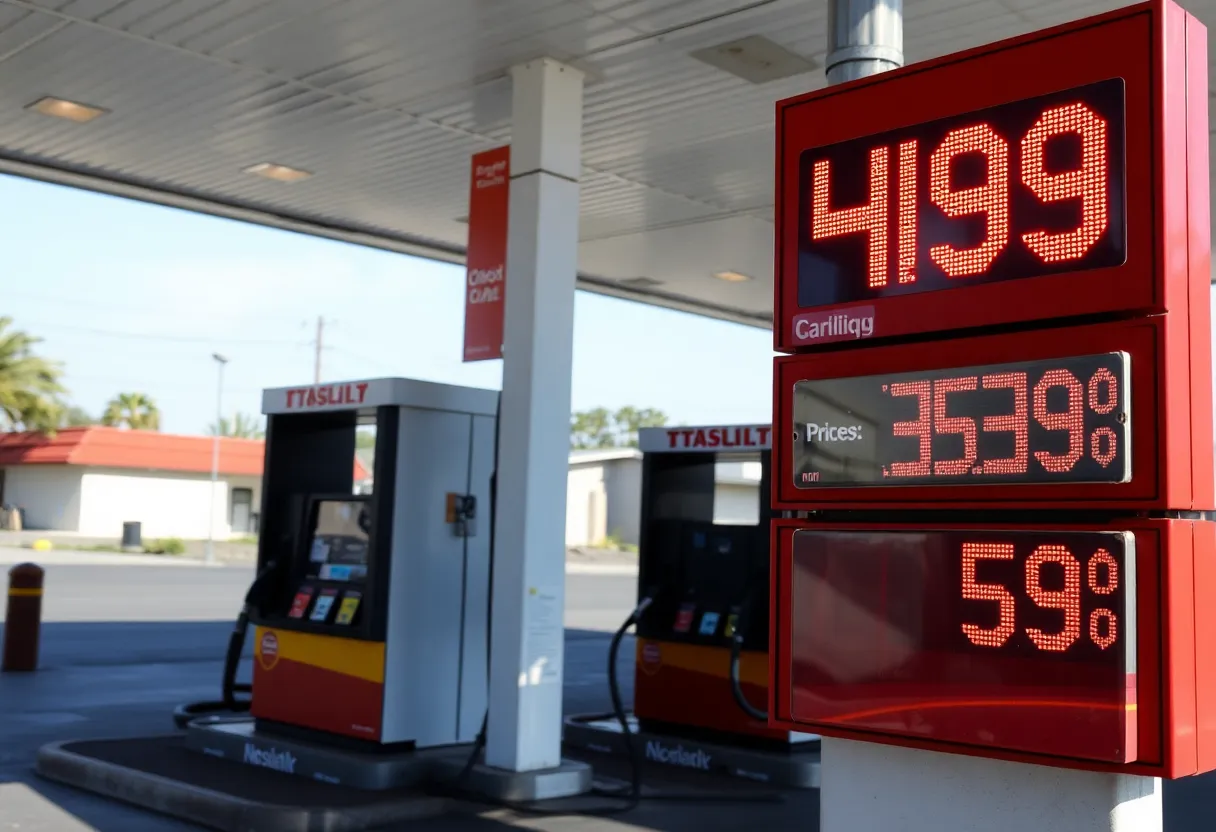News Summary
California is projected to see a 75% increase in gas prices by 2026 due to the closing of two major refineries, Phillips 66 and Valero. The closures could result in significant job losses and an economic setback for the state. With current gas prices already high, the closures could exacerbate California’s budget deficit and dependency on imported oil, raising concerns about future fuel supply stability and overall economic health.
California is facing a potential crisis in its fuel supply as gas prices are projected to soar by 75% by the end of 2026, largely due to the anticipated closures of two significant refineries in the state. The Phillips 66 refinery in Los Angeles is expected to stop operations by the end of 2025, while the Valero refinery in Benicia is slated to cease production by April 2026. Together, these refineries account for approximately 20% of the gas produced locally in California, and their shutdowns could lead to gas prices soaring to about $8.43 per gallon.
Current estimates indicate that gas prices could climb to around $6.43 per gallon due to the Phillips 66 closure alone. The ramifications of these closures extend beyond increased prices; the combined impact on employment is significant. There are 1,300 jobs directly linked to these refineries, and considering the job multiplier of 2.3, total potential job losses may approach 3,000 statewide. This could compound the economic difficulties already faced by many Californians as the state grapples with a significant budget deficit.
The impending refinery closures are partially attributed to the strict regulatory environment in California, particularly the Low Carbon Fuel Standard. This regulation has imposed challenges for local refiners which find it difficult to remain profitable in light of high operational costs associated with compliance. Addressing these regulatory issues may help avert the closures, though the political will and capacity to act in this regard remain uncertain.
Impact on Fuel Supply and Economic Health
The closure of these refineries is expected to create a gasoline deficit in the state ranging from 6.6 million to 13.1 million gallons per day. Such a deficit would not only affect the supply but also have negative repercussions on California’s GDP, affordability, and the personal income of its residents. Currently, California produces only 23.7% of its own petroleum needs. This is a significant drop compared to historical levels; in 1982, the state was able to meet 62% of its petroleum needs through in-state production. In recent years, California has heavily relied on imported oil, which adds to its vulnerability in the face of potential refinery closures.
State Response and Future Concerns
The administration of Governor Gavin Newsom is under considerable pressure to respond to this impending fuel supply crisis. Regulatory measures aimed at improving fuel supply stability have been initiated, although the long-term effectiveness of these actions remains to be seen. The closures of the Phillips 66 and Valero refineries could significantly exacerbate California’s already considerable budget deficit of $73 billion and the overall state and local government debt, which stands at approximately $1.6 trillion.
As of April, California’s average gas price was reported at $4.918, in stark contrast to the national average of $3.260. This discrepancy illustrates the challenges faced by residents and businesses alike as gasoline prices continue to rise. Without immediate and effective intervention, Californians may soon bear the brunt of sustained elevated gas prices and an uncertain economic outlook driven by declining local production capacity.
Deeper Dive: News & Info About This Topic
- California Globe
- KMPH News
- The Hill
- Desert Sun
- Forbes
- Wikipedia: Gasoline
- Google Search: California gas prices
- Google Scholar: California gas prices 2026
- Encyclopedia Britannica: California gasoline prices
- Google News: California gas closures

Author: STAFF HERE COSTA MESA WRITER
The COSTA MESA STAFF WRITER represents the experienced team at HERECostaMesa.com, your go-to source for actionable local news and information in Costa Mesa, Orange County, and beyond. Specializing in "news you can use," we cover essential topics like product reviews for personal and business needs, local business directories, politics, real estate trends, neighborhood insights, and state news affecting the area—with deep expertise drawn from years of dedicated reporting and strong community input, including local press releases and business updates. We deliver top reporting on high-value events such as the OC Fair, Concerts in the Park, and Fish Fry. Our coverage extends to key organizations like the Costa Mesa Chamber of Commerce and Boys & Girls Clubs of Central Orange Coast, plus leading businesses in retail, fashion, and technology that power the local economy such as Vans, Experian, and South Coast Plaza. As part of the broader HERE network, including HEREAnaheim.com, HEREBeverlyHills.com, HERECoronado.com, HEREHollywood.com, HEREHuntingtonBeach.com, HERELongBeach.com, HERELosAngeles.com, HEREMissionViejo.com, HERESanDiego.com, and HERESantaAna.com, we provide comprehensive, credible insights into California's dynamic landscape.


